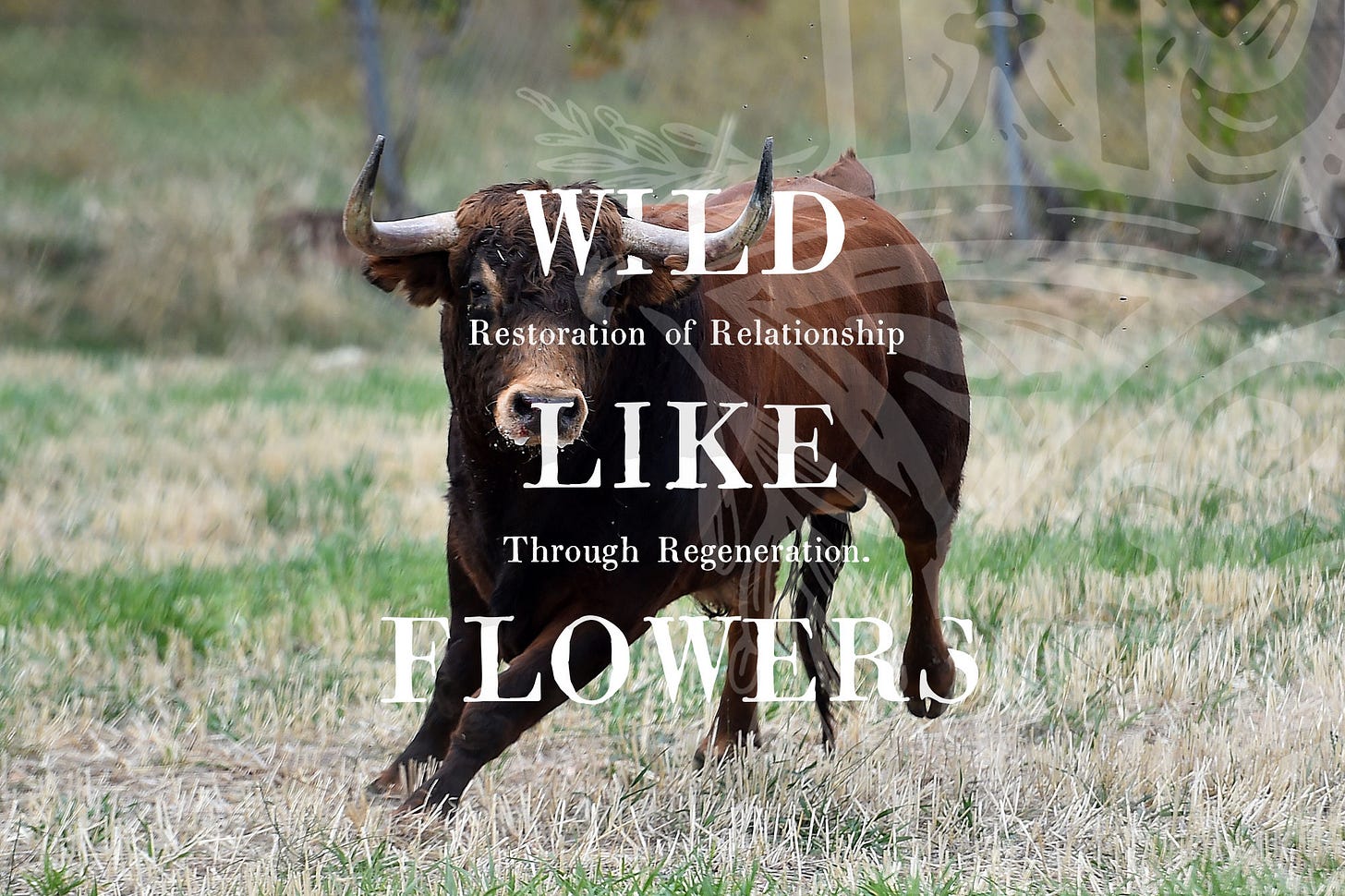Wild Like Flowers, Chapter 5: Essay On Wilding
"The blizzard was our portal to the past. Through the falling snow we saw wild herds of ancient cattle with genetic expressions formed by and fit for their natural surroundings..."
This is Chapter 5 of my second book, Wild Like Flowers: The Restoration of Relationship Through Regeneration. You can buy the book here. Or, you can read it here.
Chapter 5
I hear you whispering there,
O stars of heaven,
O suns—O grass of graves—
O perpetual transfers and premotions,
If you do not say any thing how can I say anything?
Walt Whitman, Song of Myself, Stanza 49.
“What is the Grass?” the child asks, handing the white-bearded poet a gathered handful. Whose? the bard postulates to himself, choking on the word as it comes out. He fumbles through the handful of blades and notices some fescue and orchard grass along with a hint of Indian grass. He smells it and is himself once more a child, laying underneath the meadow that herself rested between the harbor and brickyard of Huntington. Wild mint, yes, I know this spot. Lost in youth, he is trying to buy time, knowing all too well it is not for sale.
Why are they called blades? his mind rambles. Why is something so simple, so common and so daily, at the same time so entirely complex? Looking down into the eyes of curiosity itself, Walt Whitman replies, “I guess it is a uniform hieroglyphic” that “sprouts alike…among black folks as among white.” Hieroglyphic sprouts, yes, something natural that symbolizes equality, good job Whit. But the child says nothing, can say nothing. The year is 1855 and the child does not understand why Kansas is bleeding or why John is upset. And Whitman’s internal ramblings linger in his throat, himself unsatisfied with his answer. He is still laying in the meadow smelling the wild mint.
Poetry may be the marvel masked in the dailiness of the mundane—novel phrases constructed out of ordinary words—but, in this moment, America’s bard struggles to find any words at all. And so he dives deeper. Stumbling through the depths of life itself, Whitman sees it and is awarded a new language altogether. Peering into the child’s eyes, he claims, “[Grass is] the beautiful uncut hair of graves.” Grass of Graves—simply magical.
Keep reading with a 7-day free trial
Subscribe to Unshod to keep reading this post and get 7 days of free access to the full post archives.


